What Does a Web Scraper Do?
A web scraper uses bots to extract structured data and content from a website by extracting the underlying HTML code and data stored in a database.
In data extraction, from preventing your IP from getting banned to parsing the source website correctly, generating data in a compatible format, and data cleaning, there are a lot of sub-processes that go in.
Luckily, web scrapers and data scraping tools make this process easy, fast, and reliable.
- Often, the information online to be extracted is too large to be manually extracted. That is why companies who use web scraping tools may collect more data in a shorter amount of time at a lower cost.
- Besides, companies benefitting from data scraping get a step ahead in the competition between rivals in the long run.
Web scraper tools search for new data manually or automatically. They fetch the updated or new data and then store them for you to easily access. These tools are useful for anyone trying to collect data from the internet.
For example, web scraping tools can be used to collect real estate data, hotel data from top travel portals, products’ pricing, review data for e-commerce websites, and more. So, basically, if you are asking yourself, ‘where can I scrape data,’ it is data scraping tools.
Things to Consider While Choosing a Web Scraping Tool

Selecting the right web scraping tool is crucial for successful scraping activities. With many options available, it can be overwhelming to make the right choice.
To help you navigate this decision, here are some key factors to consider:
- Ease of use: Web scraping tools come in a wide range of complexity. Some are user-friendly with intuitive interfaces, while others require experience and technical background. Choose a tool that matches your comfort level to avoid struggles
- Scalability: Consider the scale of your web scraping project. Ensure that the tool you select can handle the volume of data you intend to scrape efficiently.
- Data extraction capabilities: Different tools can excel at scraping different data types. Some are excellent for structured data, while others can handle unstructured data. Evaluate your data extraction needs and choose a tool that has relevant capabilities.
- Robustness and reliability: Consider how frequently the tool is updated and whether it can handle changes in website structure. A reliable tool should provide consistent results even as websites evolve.
- Proxy support: Many websites restrict or block IP addresses that access their content too frequently. To avoid getting blocked, using a web scraping tool that supports proxies is essential. Proxies can help you rotate IP addresses and maintain anonymity while scraping.
- Cost and effectiveness: You need to consider your budget when choosing a web scraping tool. Some web scraping tools are free, while others require a subscription. Also, be aware of any licensing restrictions, especially if you aim to use the scraped data commercially.
- Support and community options: Having access to a supportive community and reliable customer support can be a lifesaver when you encounter issues or have questions. Check if the tool you consider has an active user community and responsive customer support.
15 Best Web Scraping Tools to Use in 2024
Let’s take a look at the list of the best web scraper tools in comparison to answer the question: what is the best web scraping tool?
1. Bright Data
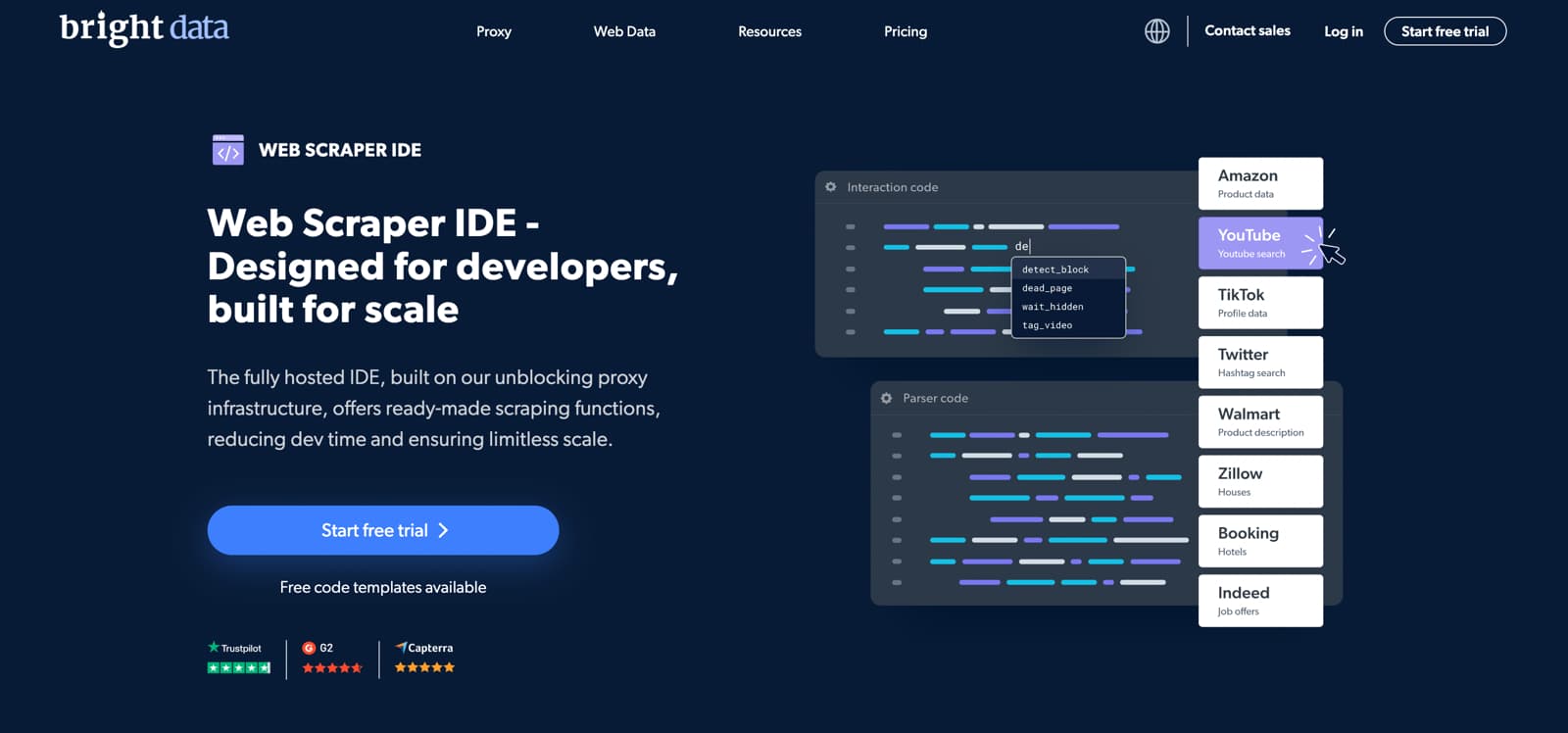
Bright Data Web Scraper IDE - Designed for developers, built for scale. The fully hosted IDE, built on our unblocking proxy infrastructure, offers ready-made scraping functions, reducing dev time and ensuring limitless scale.
Features
- Leverage the Industry’s First Proxy Infrastructure
- Fully Hosted Cloud Environment
- Pre-made web scraper templates
- Browser scripting in JavaScript
- Built-in Proxy & Unblocking
- Industry Leading Compliance
- Designed for Any Use Case
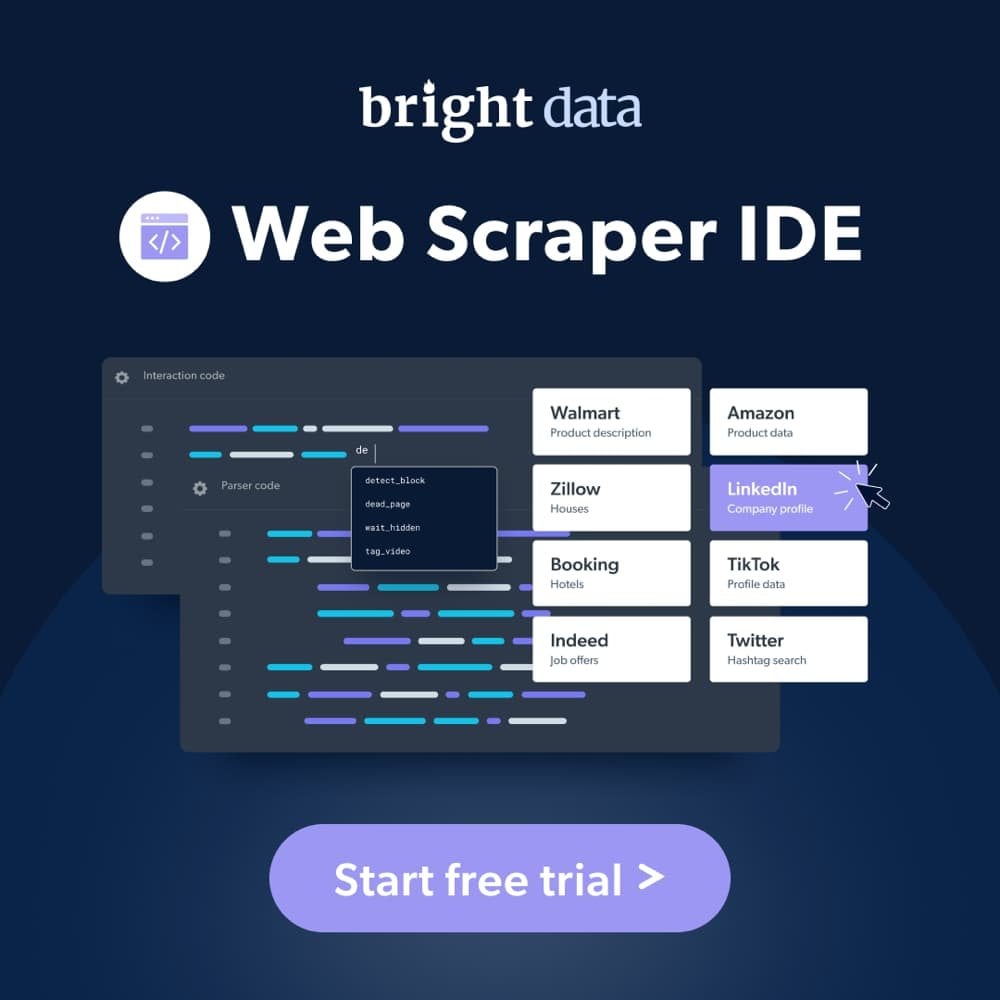
Capterra Rating: 4.8/5
Best For: Bright Data can be a game-changer for e-commerce platforms seeking to refine their product and pricing strategies and for marketing teams that need to gather insights from social media data.
2. Oxylabs Scraper API
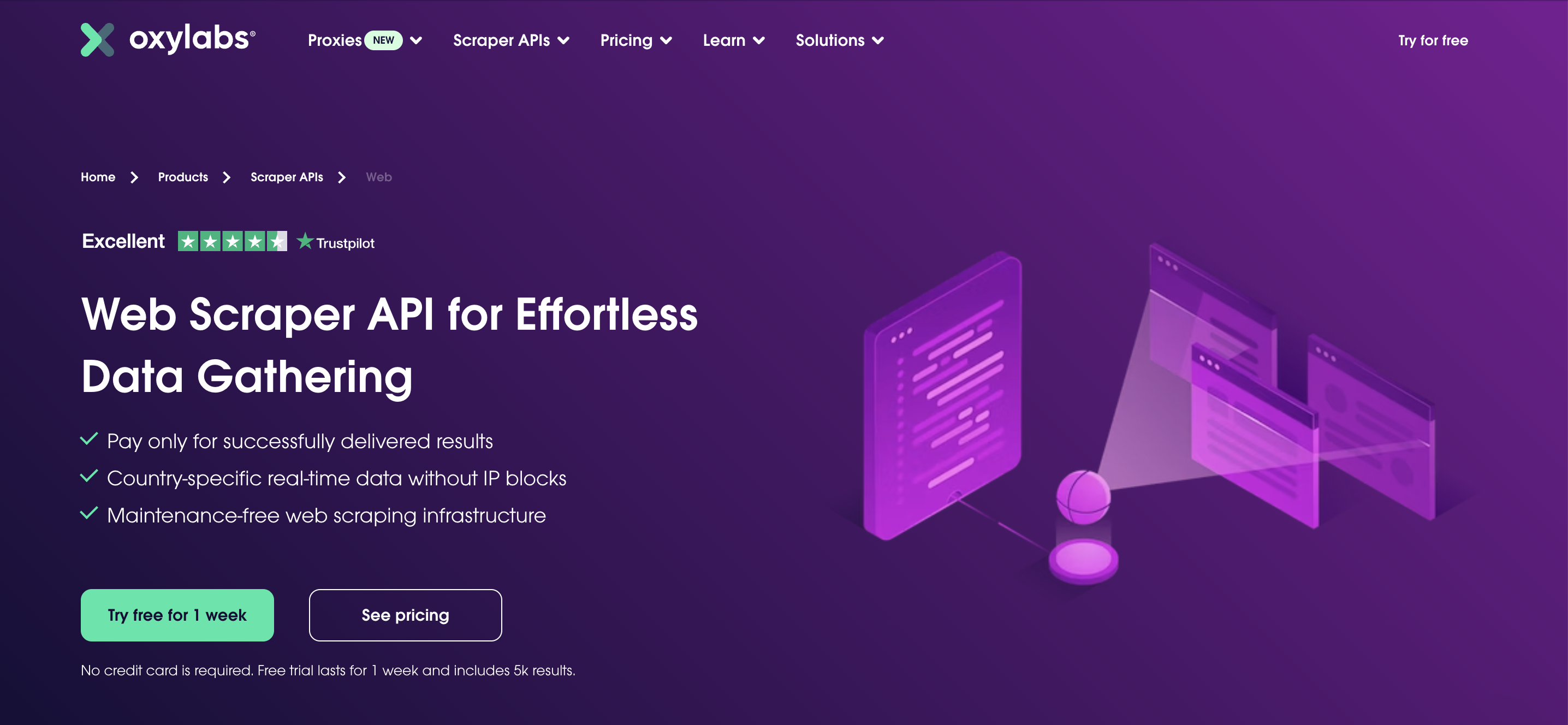
Oxylabs' Web Scraper API is designed to collect real-time public web data from almost any page. It serves as a trustworthy solution for quick and reliable data extraction. As a result, Web Scraper API best fits, but isn't limited to, use cases such as fraud protection, market research, and travel fare monitoring. It gives a free trial for one week.
Features
- Patented Proxy Rotator for block management
- Auto-retry system for failed scraping attempts
- Country-specific geo-targeting
- JavaScript rendering
- Recurring jobs scheduling
G2 Rating: 4.6/5
Best For: Oxylabs is the go-to choice for those seeking excellence in various fields, including market research, brand protection, ad verification, travel fare aggregation, SEO monitoring, pricing intelligence, and many other applications.
Pricing: Free and paid plans starting at $49/month
3. Webscraper.io
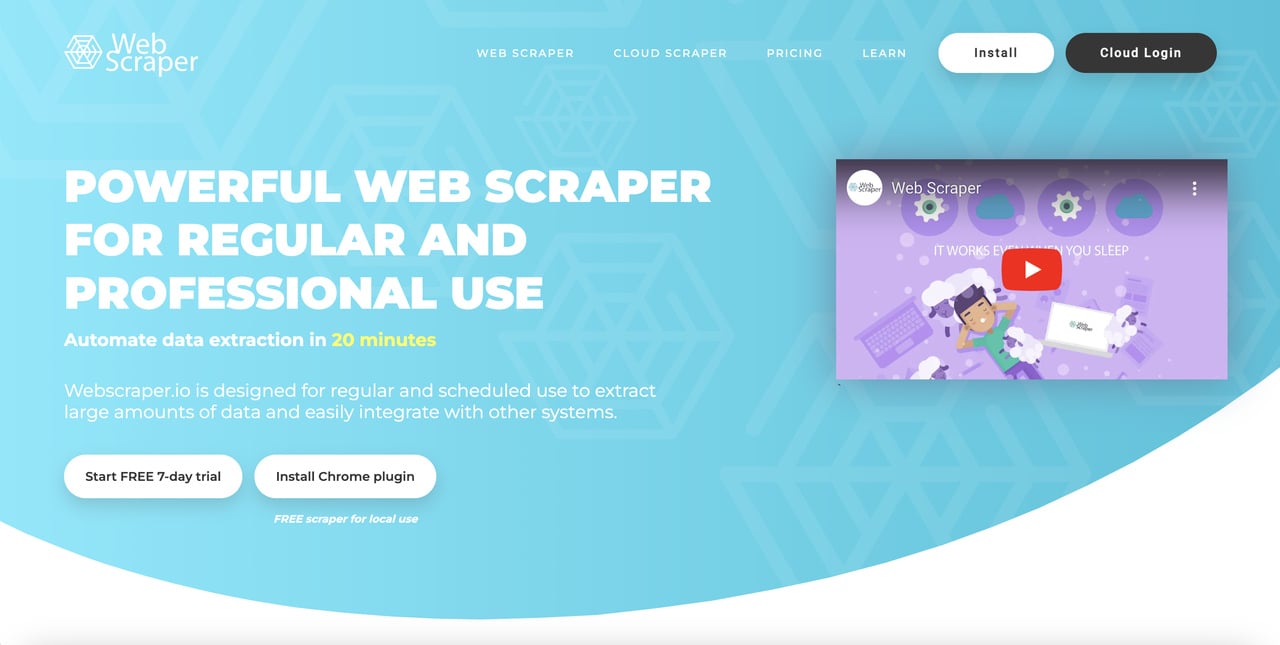
Webscraper.io is designed to extract data extraction and automate parallel tasks. It provides webhook and API access for its users.
IP rotation through IP addresses is very effective for offering reliability and adaptability for your varied data extraction needs. With Webscraper.io's Parser, you can consistently enhance the efficiency of data post-processing.
When it comes to integrations of Webscraper.io, there are Dropbox, Google Sheets, and Amazon S3.
Features:
- Extracts data from dynamic websites
- Using Javascript sites to handle full execution and Ajax requests
- For customizing data, sitemaps are valid and preferable
- Makes possible to export data in CSV, XLSX, and JSON formats
Capterra Rating: 4.7/5.
Webscraper.io Capterra Reviews
Best for: Webscraper.io distinguishes itself with its exceptional robustness, demonstrating the capability to extract data and automate parallel tasks efficiently within 20 minutes.
Pricing: Webscraper.io has a free browser extension with simple features that you can use. For pricing features, the plans range from $50 to $300 by extending the capabilities and limits of using Webscraper.io. Based on your company size and expectations, you can choose one of the plans or choose the Scale plan to customize your plan.
4. Apify
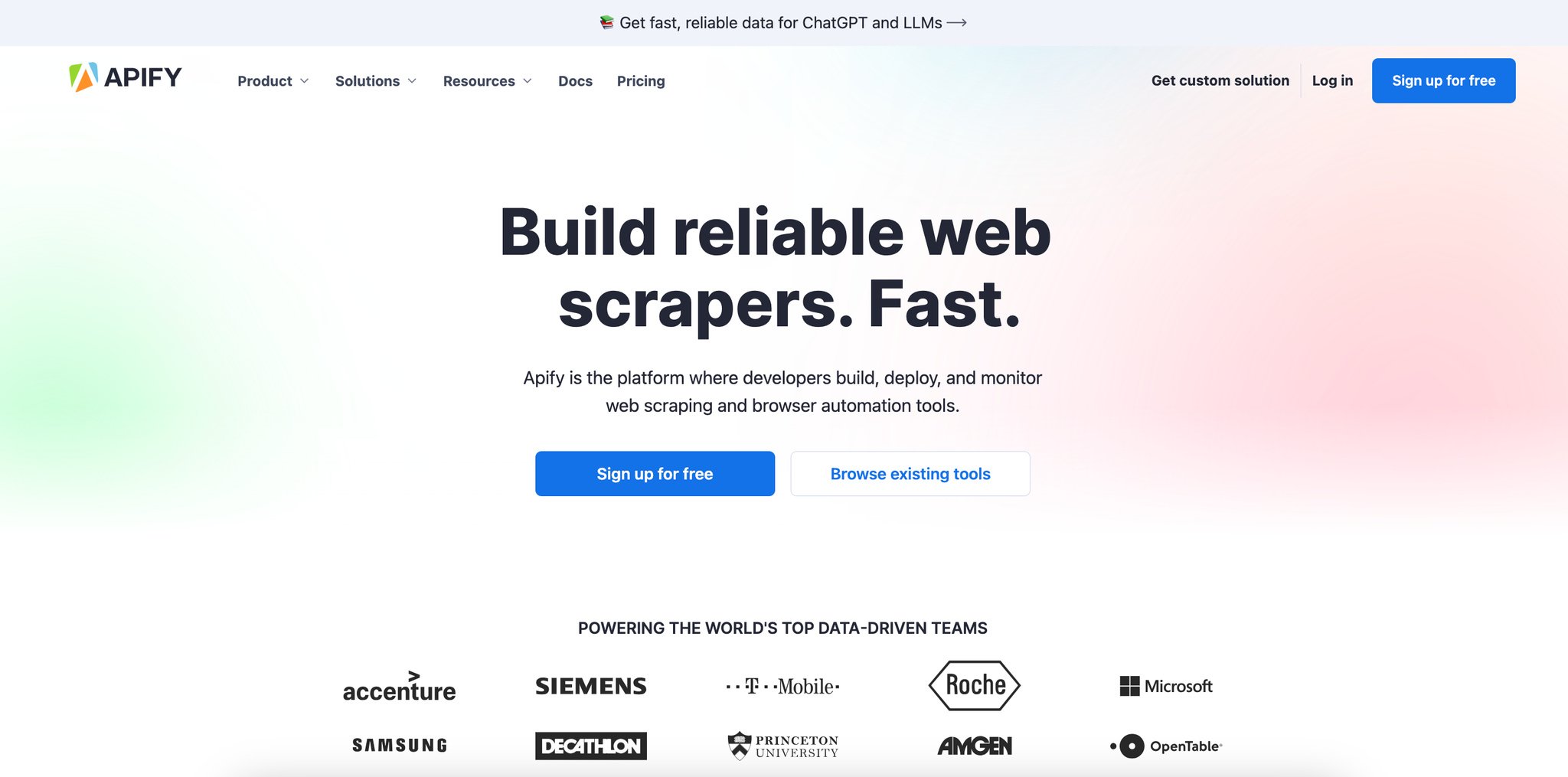
Apify is the no-code most powerful web scraping and automation platform.
Features
- Hundreds of ready-to-use tools
- No-code, open-source proxy management
- Search engine crawler
- Proxy API
- Browser extension
Capterra Rating: 4.8/5
Best For: Apify is best for one-click web integrations for scraping web pages, mobile applications, and e-commerce platforms. Small and large businesses can use this tool to automate different workflows they need.
Pricing: Apify has a forever-free plan. The personal plan starts at $49.
5. Scrape.do
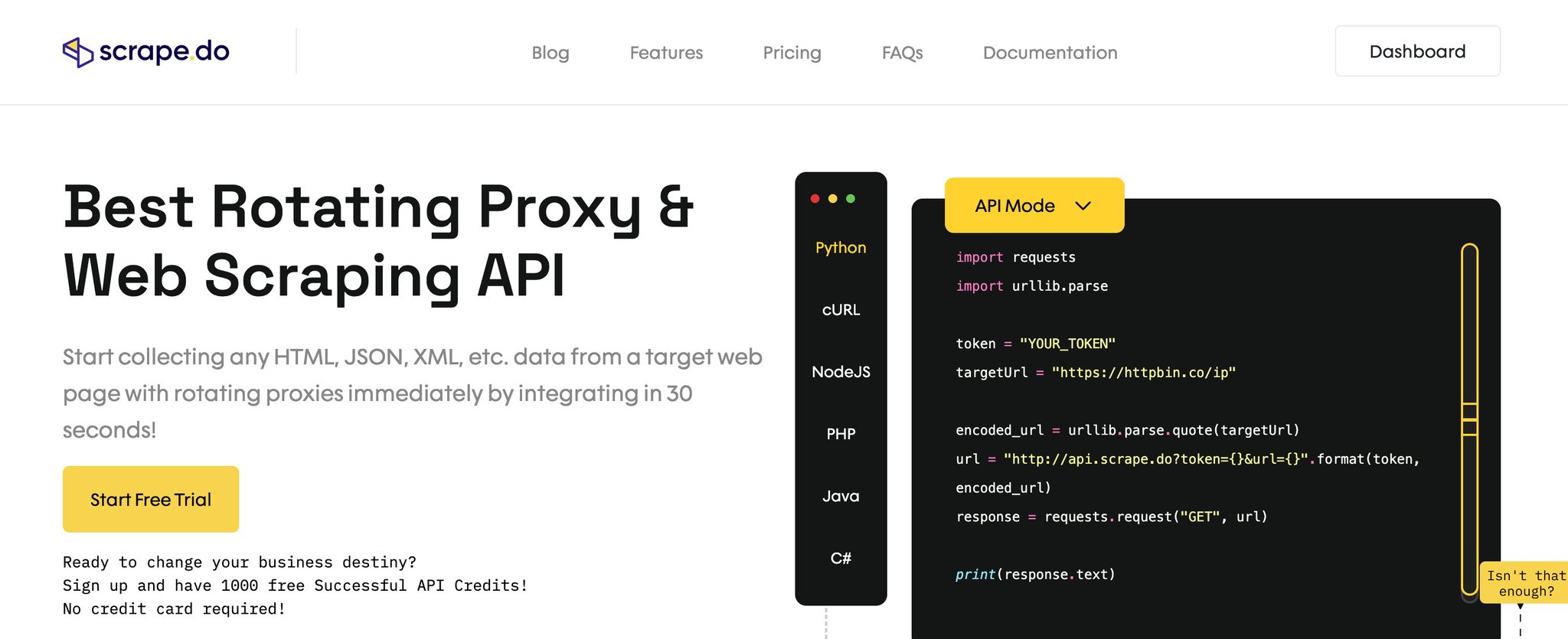
Scrape.do is an easy-to-use web scraper tool, providing a scalable, fast, proxy web scraper API in an endpoint. Based on cost-effectiveness and features, Scrape.do is on top of the list. As you will see in the continuation of this post, Scrape.do is one of the lowest-cost web scraping tools out there.
-Unlike its competitors, Scrape.do does not charge extra for Google and other hard-to-scrape websites.
-It offers the best price/performance ratio in the market for Google scraping (SERP). (5,000,000 SERP for $249)
-Additionally, Scrape.do has 2-3 seconds average speed in collecting anonymous data from Instagram and a 99% success rate.
-Its gateway speed is also 4 times faster than its competitors.
-Moreover, this tool is providing residential and mobile proxy access twice as cheaper.
Here are some of its other features.
Features
- Rotating proxies; allow you to scrape any website. Scrape.do rotates every request made to the API using its proxy pool.
- Unlimited bandwidth in all plans
- Fully customizable
- Only charges for successful requests
- Geotargeting option for over 10 countries
- JavaScript render which allows scraping web pages that require to render JavaScript
- Super proxy parameter: allows you to scrape data from websites with protections against data center IPs.
Capterra Rating: 5/5
Best For: As Scrape.do allows users to extract data from multiple websites, it can be best for large-scale projects. Any business or person who needs data can use this platform easily.
Pricing: Price plans start at $29/m. The pro plan is $99/m for 1,300,000 API calls.
6. ParseHub
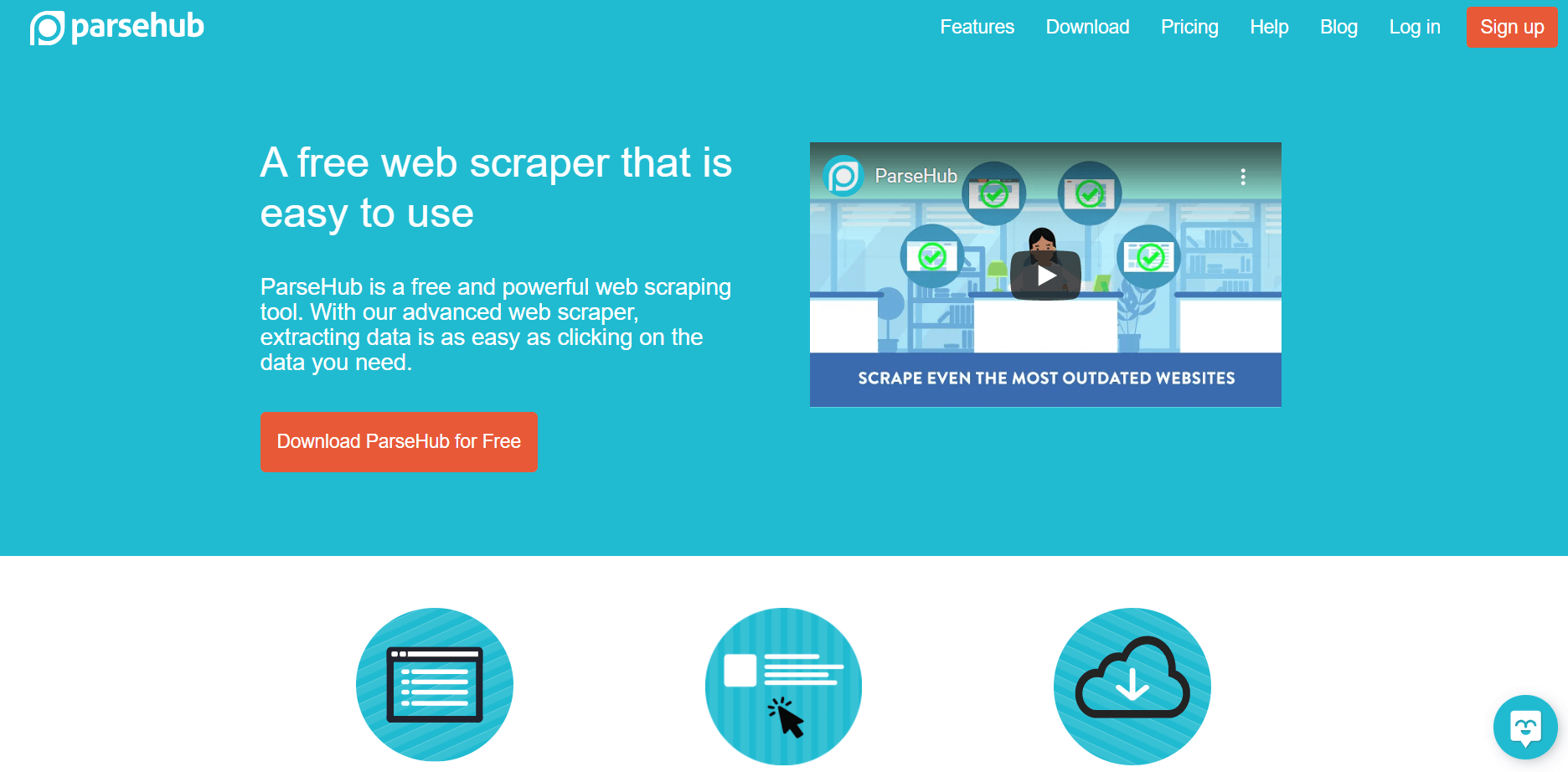
ParseHub is a free web scraper tool developed for extracting online data. This tool comes as a downloadable desktop app. It provides more features than most of the other scrapers, for example, you can scrape and download images/files, and download CSV and JSON files. Here’s a list of more of its features.
Features
- IP rotation
- Cloud-based for automatically storing data
- Scheduled collection (to collect data monthly, weekly, etc.)
- Regular expressions to clean text and HTML before downloading data
- API & webhooks for integrations
- REST API
- JSON and Excel format for downloads
- Get data from tables and maps
- Infinitely scrolling pages
- Get data behind a log-in
Capterra Rating: 4.5/5
Best For: ParseHub can be an ideal choice for software developers, data journalists, consultants, business analysts, marketing professionals, and start-ups.
Pricing: Yes, ParseHub offers a variety of features, but most of them are not included in its free plan. The free plan covers 200 pages of data in 40 minutes and 5 public projects.
Priced plans start at $189/m. So, I can suggest that more features come at a higher cost. If your business is small, it may be best to use the free version or one of the cheaper web scrapers on our list.
7. Diffbot
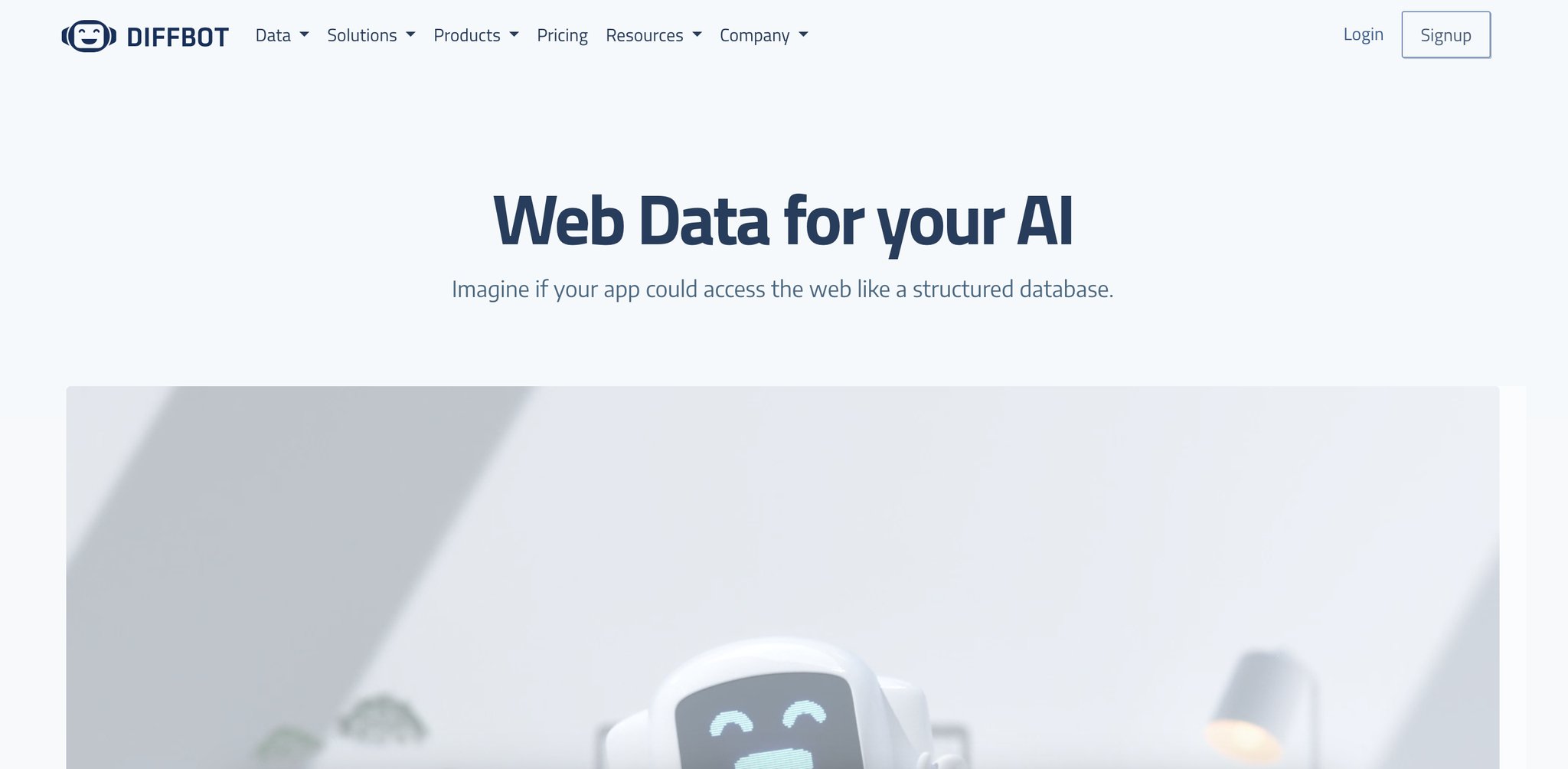
Diffbot is another web scraping tool that provides extracted data from web pages. This data scraper is one of the top content extractors out there. It allows you to identify pages automatically with the Analyze API feature and extract products, articles, discussions, videos, or images.
Features
- Product API
- Clean text and HTML
- Structured search to see only the matching results
- Visual processing that enables scraping most non-English web pages
- JSON or CSV format
- The article, product, discussion, video, image extraction APIs
- Custom crawling controls
- Fully-hosted SaaS
Capterra Rating: 4.5/5
Best For: Diffbot is best for marketing teams and best for purposes like lead generation, market research, outreach, and sentiment analysis.
Pricing: 14-day free trial. Price plans start at $299/m, which is quite expensive and a drawback for the tool. However, it’s up to you to decide whether you need the extra features this tool provides and to evaluate its cost-effectiveness for your business.
8. HasData (Formerly Scrape-It.Cloud)
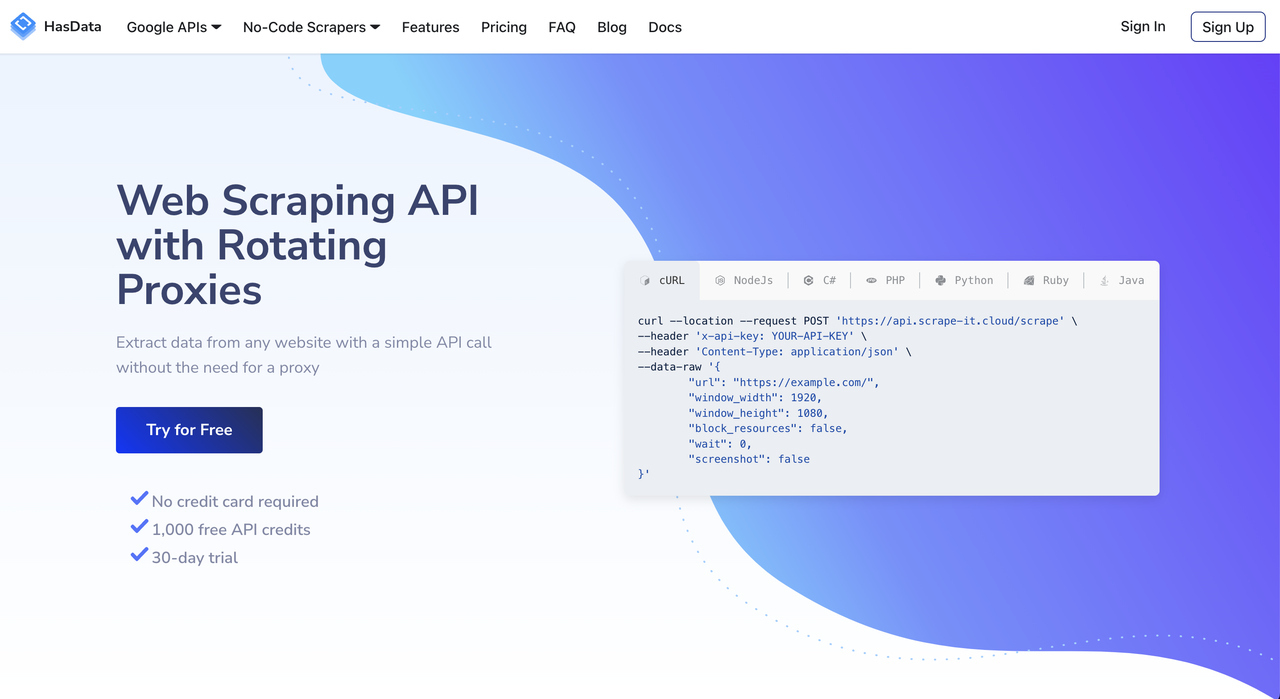
HasData is a web scraping API that helps users extract data from any website with a simple API call, no proxy required.
With features like automatic proxy rotation, automatic scaling, and Javascript rendering, it simplifies and speeds up web scraping.
In addition to its web scraping API, the service also offers ready-made no-code scrapers that allow users to easily retrieve the data they need in popular formats such as CSV, Excel, and JSON.
Features
- JavaScript rendering
- Automatic proxy rotation
- Worldwide geotargeting
- Unlimited bandwidth
- Google SERP API
Best For: It can be useful for those who do not have programming skills or do not want to write their own scripts from scratch.
Pricing: Scrape-It.Cloud offers a 30-day free trial for all its plans.
- Individual: $ 29/mo
- Startup: $ 49 /mo
- Business: $ 99 /mo
- Enterprise: $ 249 /mo
9. Octoparse
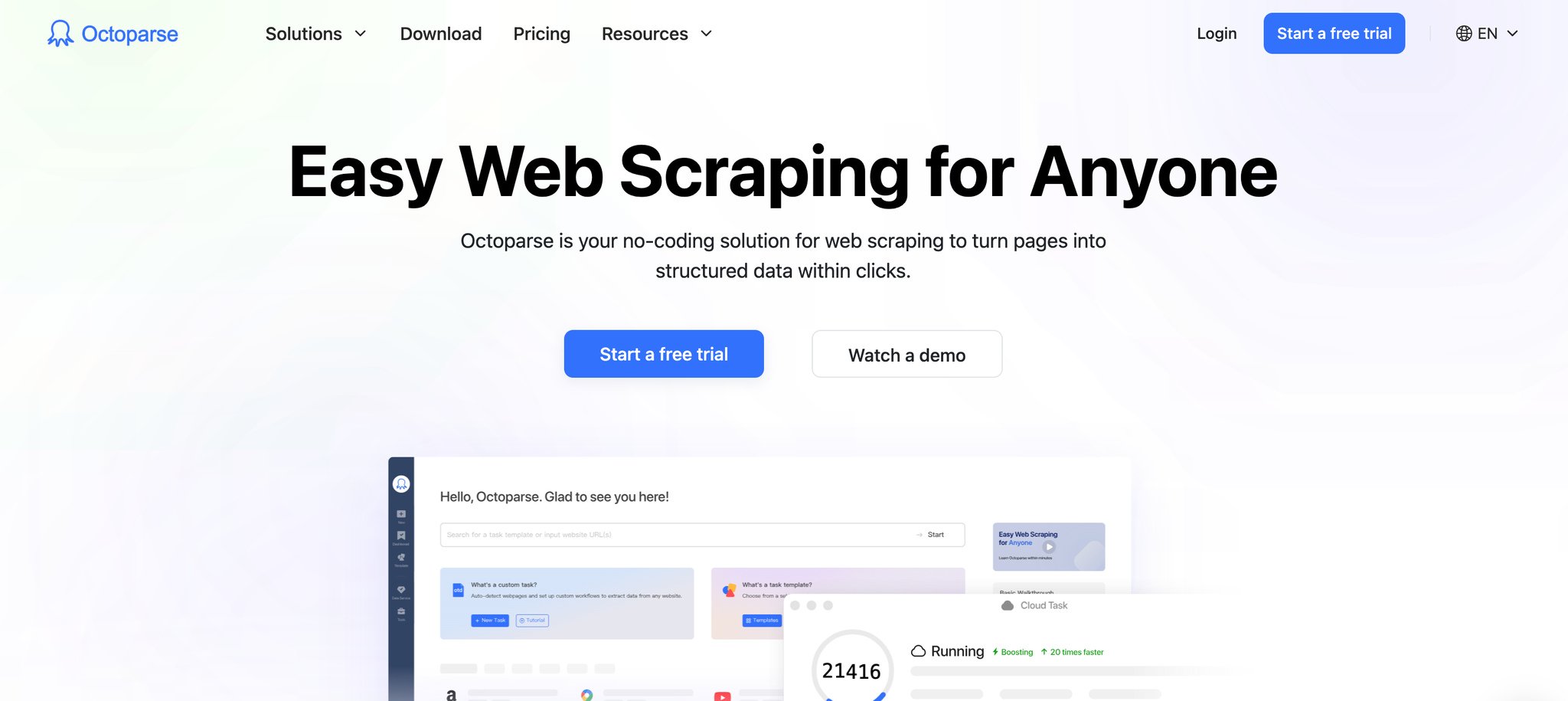
Octoparse stands out as an easy-to-use, no-code web scraping tool. It provides cloud services to store extracted data and IP rotation to prevent IPs from getting blocked. You can schedule scraping at any specific time. Besides, it offers an infinite scrolling feature. Download results can be in CSV, Excel, or API formats.
Best For: Octoparse is best for non-developers who are looking for a friendly interface to manage data extraction processes.
Capterra Rating: 4.5/5
Pricing: Free plan available with limited features. Price plans start at $75/m.
10. ScrapingBee
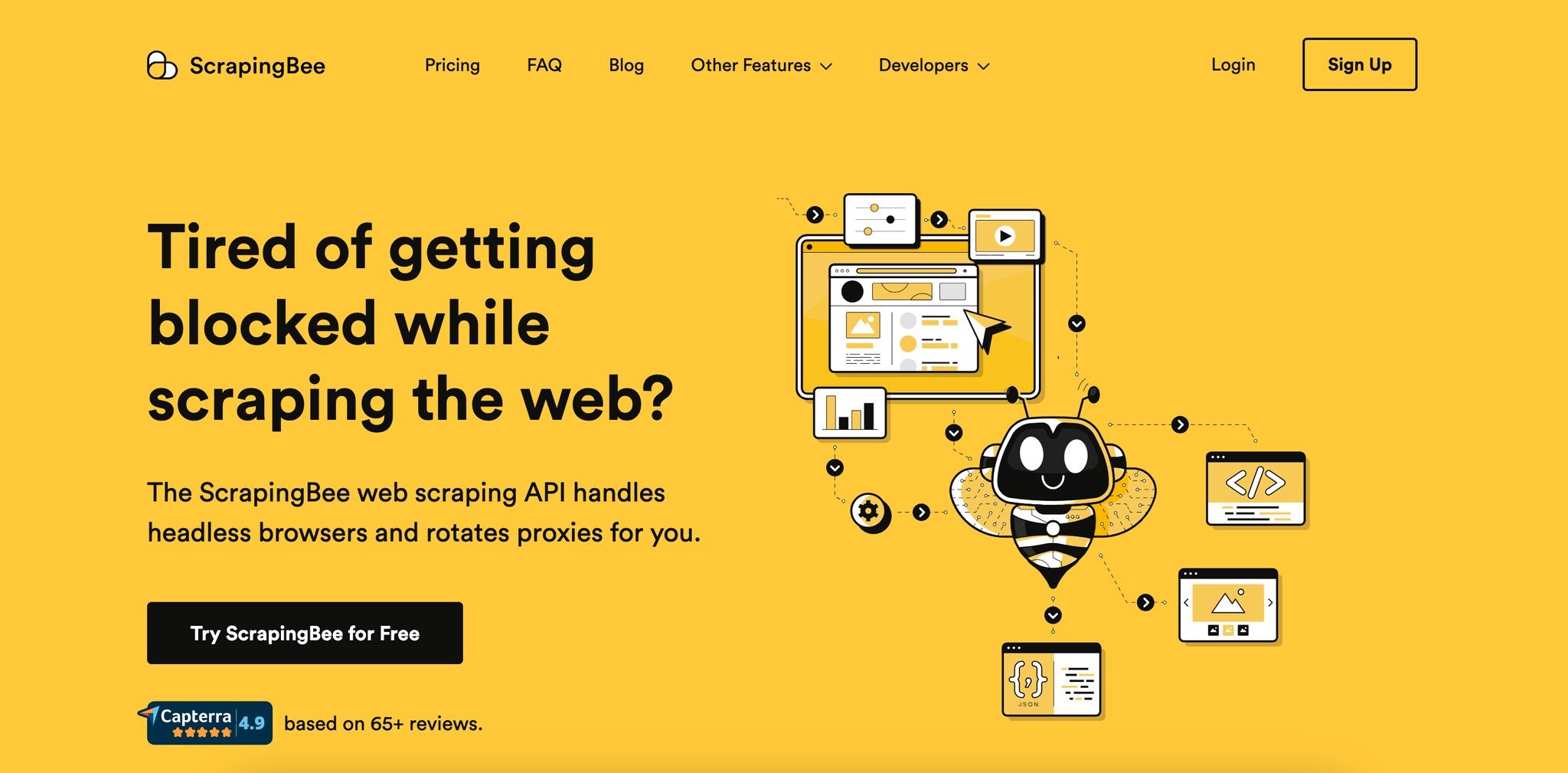
ScrapingBee is another popular data extraction tool. It renders your web page as if it was a real browser, enabling the management of thousands of headless instances using the latest Chrome version.
So, they claim dealing with headless browsers as other web scrapers do is time-wasting and eating up your RAM & CPU. What else does ScrapingBee offer?
Features
- JavaScript rendering
- Rotating proxies
- General web scraping tasks like real estate scraping, price-monitoring, and extracting reviews without getting blocked.
- Scraping search engine results pages
- Growth hacking (lead generation, extracting contact information, or social media.)
Capterra Rating: 4.9/5
Best For: ScrapingBee is best for extracting data for lead generation. Freelancers, small and mid-sized businesses can use this tool.
Pricing: ScrapingBee's price plans start at $49/m.
11. Scrapingdog
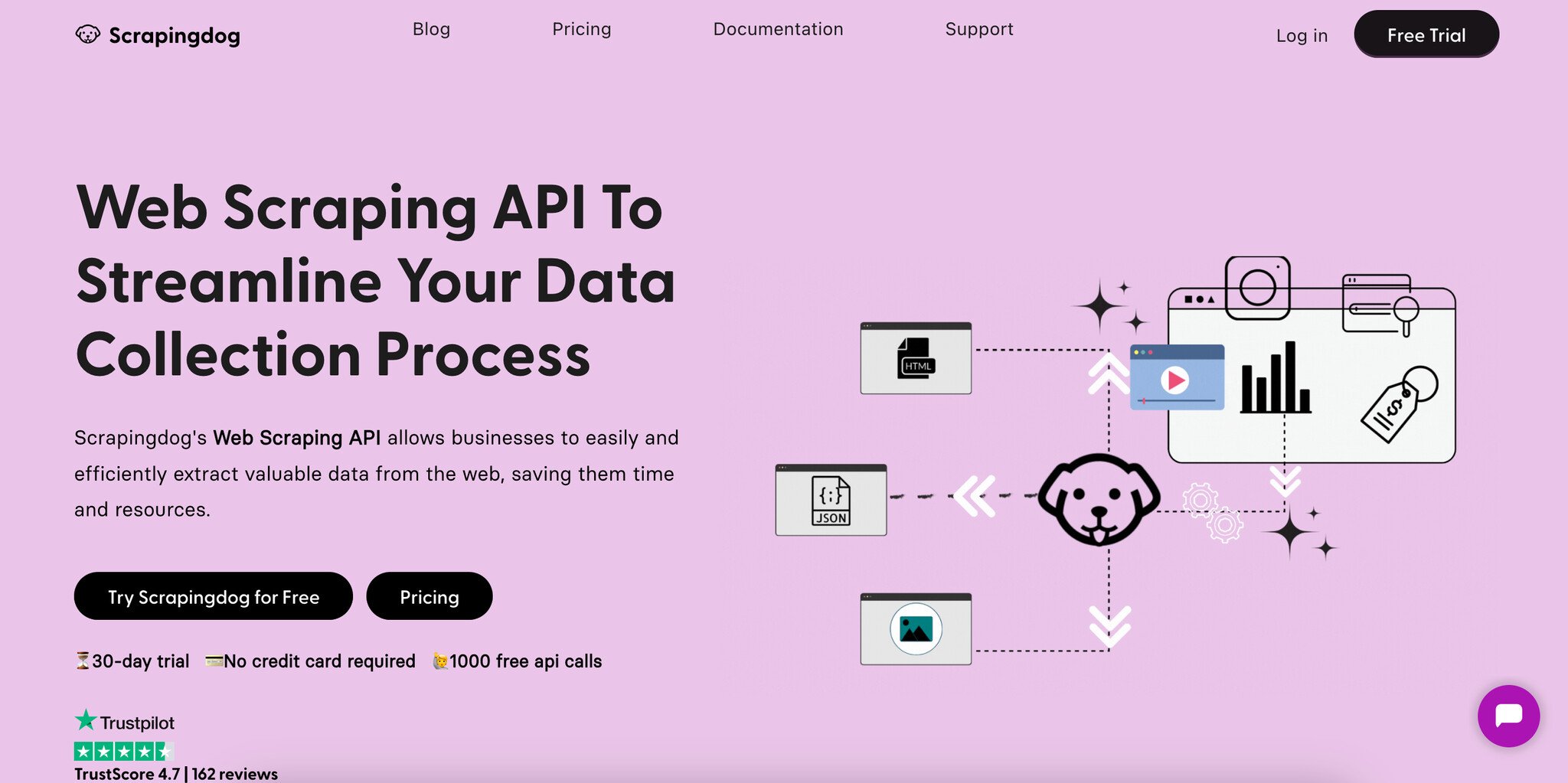
Scrapingdog is a web scraping tool that makes it easier to handle proxies, browsers, as well as CAPTCHAs. This tool provides HTML data of any webpage in a single API call. One of the best features of Scraping dog is that it also has a LinkedIn API available. Here are other prominent features of Scrapingdog:
Features
- Rotates IP address with each request and bypasses every CAPTCHA for scraping without getting blocked.
- Rendering JavaScript
- Webhooks
- Headless Chrome
Best For: Scrapingdog is for anyone who needs web scraping, from developers to non-developers.
Pricing: Price plans start at $30/m. The standard plan is for $90/m, and the pro plan starts at $200/m.
12. Grepsr
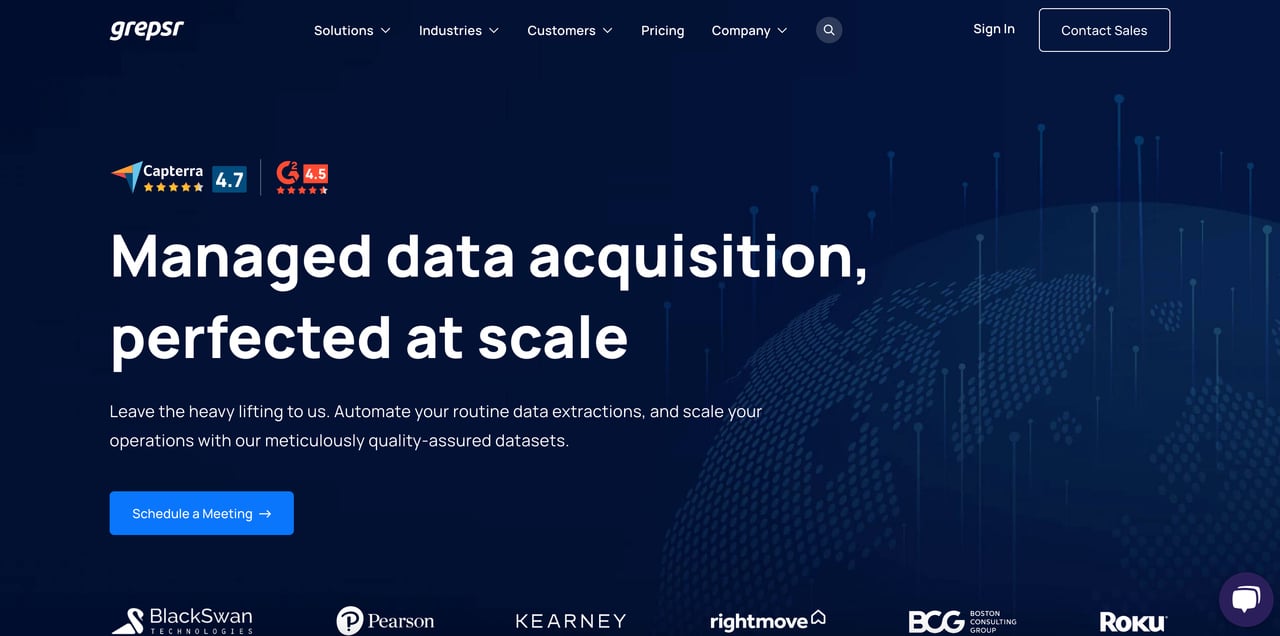
Developed to produce data scraping solutions, Grepsr can help your lead generation programs, as well as competitive data collection, news aggregation, and financial data collection. Web scraping for lead generation or lead scraping enables you to extract email addresses.
Features
- Lead generation data
- Pricing & competitive data
- Financial & market data
- Distribution chain monitoring
- Any custom data requirements
- API ready
- Social media data and more
Capterra Rating: 4.7/5
Best For: Grepsr is best for small, medium, and large businesses as it provides various solutions for web scraping that can fit different needs.
Pricing: Price plans start at $299. It is a bit expensive so this could be a drawback. Still, it is up to your business needs.
13. Scraper API
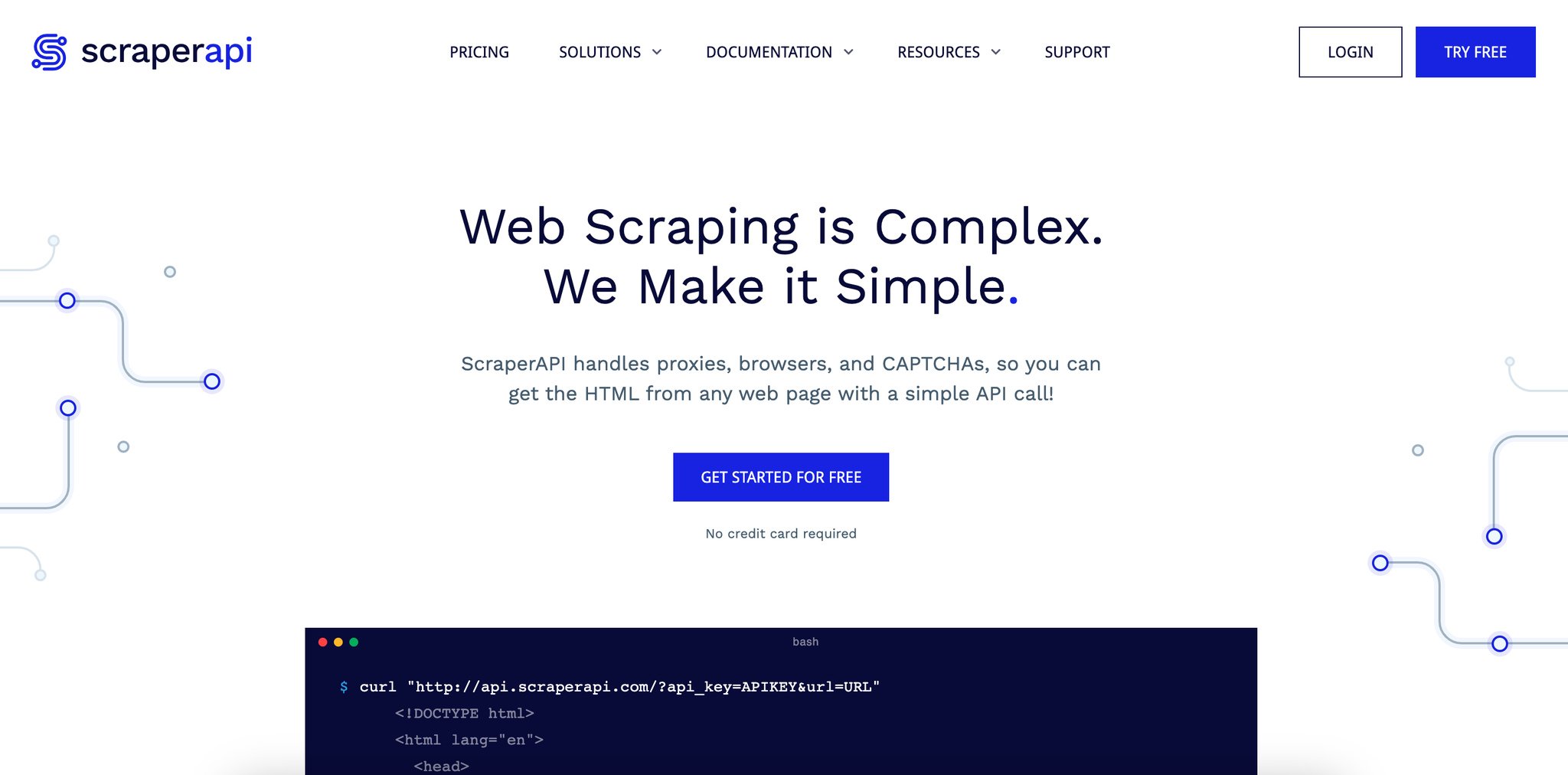
Scraper API is a proxy API for web scraping. This tool helps you manage proxies, browsers, and CAPTCHAs, so you can get the HTML from any web page by making an API call.
Features
- IP rotation
- Fully customizable (request headers, request type, IP geolocation, headless browser)
- JavaScript rendering
- Unlimited bandwidth with speeds up to 100Mb/s
- 40+ million IPs
- 12+ geolocations
Capterra Rating: 4.6/5
Best For: Scraper API is best for developers and IT companies as it might require a technical background in Java, PHP, Ruby, or Python.
Pricing: Paid plans start at $49/m however, the lowest-cost plan does not include JS rendering, and it is limited.
The startup plan ($149/m) includes only the US geolocating and no JS rendering. To benefit from all geotargeting and 3,000,000 API credits, you need to purchase the $299/m business plan.
14. Scrapy
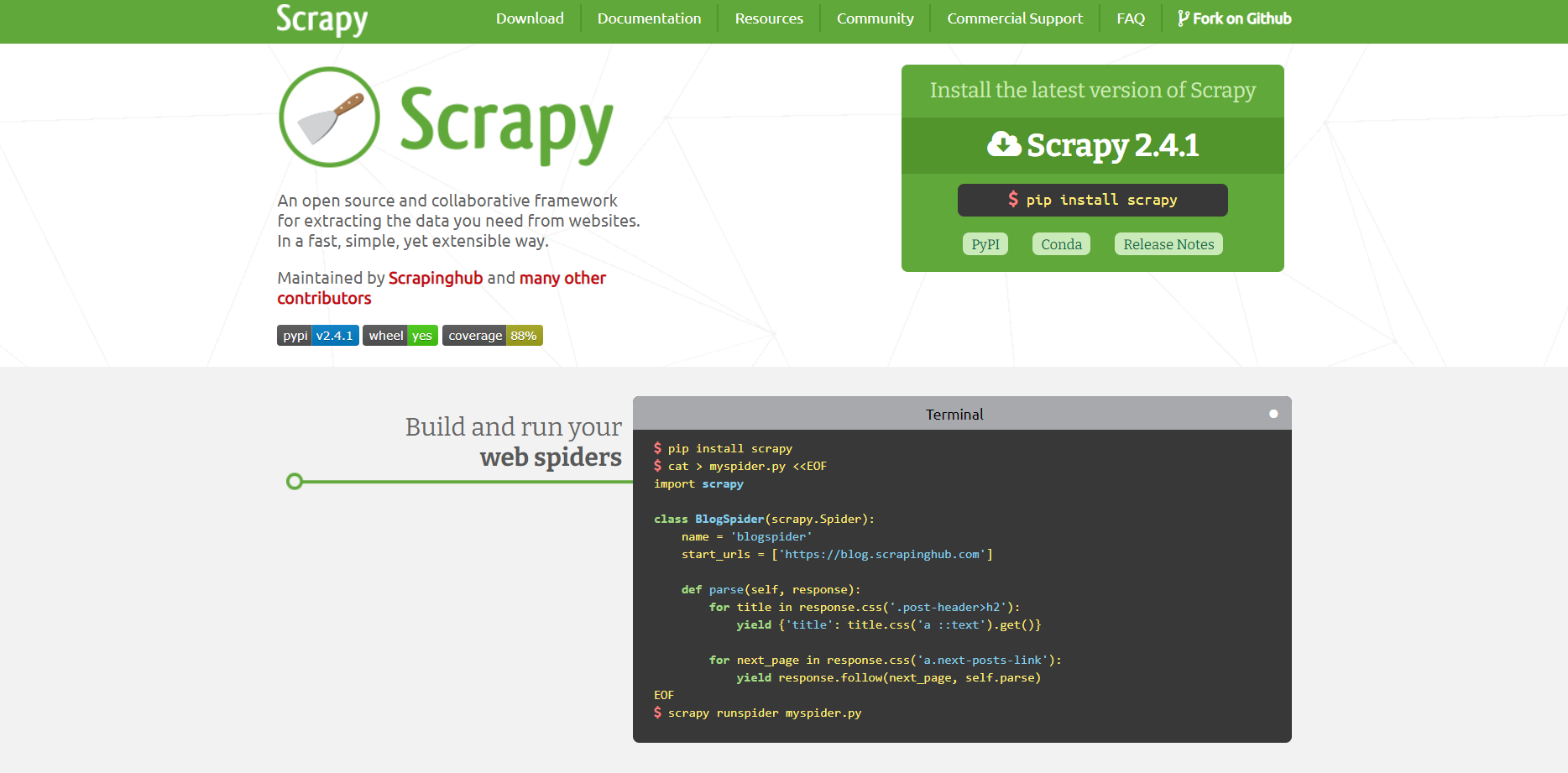
Another one on our list of the best web scraping tools is Scrapy. Scrapy is an open-source and collaborative framework designed to extract data from websites. It is a web scraping library for Python developers who want to build scalable web crawlers.
This tool is completely free.
Best For: Scrapy is best for developers with Python knowledge, and it requires technical knowledge.
15. Import.io
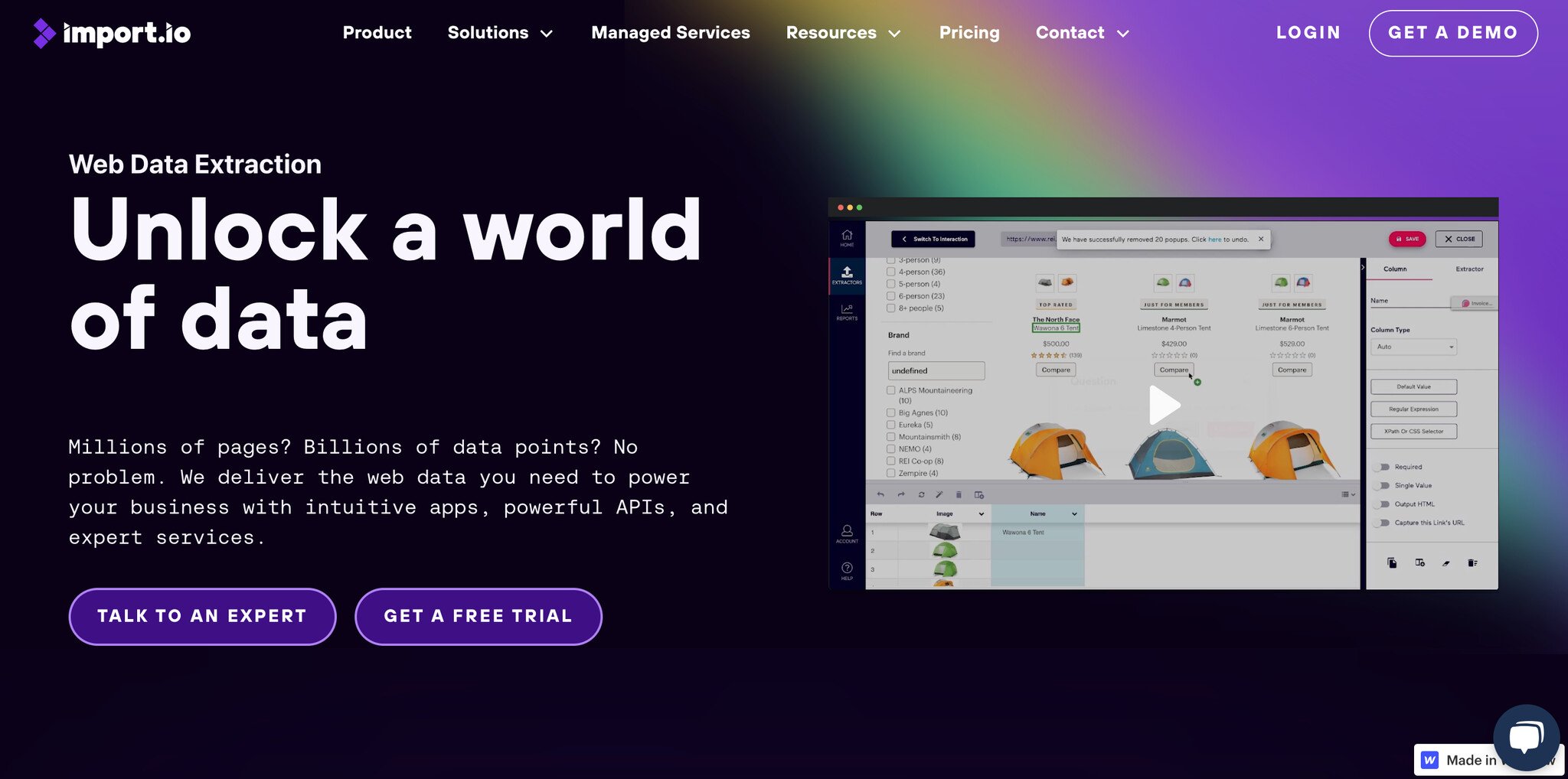
Web scraping tool Import.io helps to collect data at a scale. It offers operational management of all your web data while providing accuracy, completeness, and reliability.
Import.io offers a builder to form your own datasets by importing the data from a specific web page and then exporting the extracted data to CSV. Also, it allows building 1000+ APIs based on your requirements.
Import.io comes as a web tool along with free apps for Mac OS X, Linus, and Windows.
While Import.io provides useful features, this web scraping tool has some drawbacks as well, which I should mention.
Capterra rating: 3.6/5. The reason for such a low rating is its cons. Most users complain about the lack of support and too expensive costs.
Best For: Import.io is best for price monitoring, machine learning, investment research, and many different use cases. E-commerce businesses, retailers, and researchers can use this web scraping tool.
Pricing: Pricing plans start at $199/m.
Usage Areas for Web Scraping Tools

Web scraping tools are versatile tools that can be applied across various areas and industries. Whether you're a data enthusiast, a researcher, a marketer, or a business owner, web scraping can provide valuable insights with different capabilities.
Here are some of the usage areas:
- Market research and analysis: Web scraping enables businesses to monitor their competitors' strategies, product offerings, and customer reviews. By collecting data from various sources, you can make informed decisions to stay ahead in your industry by monitoring competitors.
- E-commerce price monitoring: Customers and e-commerce businesses can benefit from these tools to track product prices across various platforms. This allows consumers to find the best deals, while businesses can adjust their pricing strategies according to their competitors in real time.
- Data enrichment: Web scraping tools can enhance your existing datasets by pulling in additional information. This could include adding social media profiles, email addresses, or other relevant details to your CRM database.
- Lead generation: Sales and marketing professionals can use web scraping tools to generate leads by extracting contact information from websites, forums, and social media platforms. This streamlines the process of reaching out to potential prospects in certain campaigns.
- Monitoring social media data: Scraping data from sites such as Twitter, Facebook, and Instagram allows brands and marketers to watch social media mentions and conduct sentiment analysis. This aids in comprehending customer feedback and altering marketing strategy accordingly.
- Academic and scientific research: Researchers and academics can use web scraping to obtain data for studies, surveys, and analysis. This might range from acquiring real estate data to monitoring social media trends.
Wrap-up
I tried to list the best web scraping tools that will ease your online data extraction workload. Another question that includes this topic: Is web scraping unethical? You should also consider it according to legal issues. I hope you find this post helpful when deciding on a data scraper. If you are looking for web scraping API solution, you can read our review post also.
Do you have any other web scraper tools that you use and suggest? I'd love to hear. You can write in the comments.
Frequently Asked Questions
How Can I Scrape Data for Free?
You can use web scraping tools that provide free plans if you want to scrape data for free. As we listed in this article, tools like Oxylabs, Apify, Parsehub, and Octoparse offer free plans.
Is Coding Knowledge Necessary to Use Web Scraping Tools?
Basic coding knowledge, especially in Python, can be helpful but is not always necessary. Some web scraping tools offer user-friendly interfaces that require minimal coding.
Are There Any Alternatives to Web Scraping for Obtaining Data from Websites?
Alternatives include using API endpoints if available, requesting data through email or contact forms, or purchasing datasets from data providers.
Suggested articles:
- How to Scrape Amazon Product Data (Step-by-Step Guide)
- Top 11 eBay Dataset Providers for Valuable Insights
- 10 Best Image Optimization Tools & CDNs to Increase Website Speed
- 10 Best LinkedIn Email Extractor and Finder Tools
- Top 21 CRO Tools to Boost Conversions and UX (Free & Paid)
- 10 Best Residential Proxies in 2024 (Features & Ratings)
Thank you for your time.

.png)



